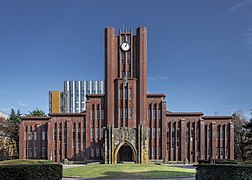SoftBank and University of Tokyo (UTokyo) Forge Partnership to Drive Quantum Computing Adoption through the Quantum Innovation Initiative Consortium
SoftBank Corp. (“SoftBank”) and The University of Tokyo announced they launched a joint research collaboration in September 2023 with a view to the business utilization of quantum computers. In relation, SoftBank joined the Quantum Innovation Initiative Consortium (“QII Consortium”), operated by The University of Tokyo.
SoftBank and The University of Tokyo aim to strengthen industry-academia collaboration, accelerate research and development for the business utilization of quantum computing technology and verify use cases using the quantum computer IBM Quantum System One, which is equipped with a 127-qubit processor and will be installed at the Kawasaki Business Incubation Center (“KBIC”). SoftBank and The University of Tokyo will link the system with mobile communication technologies such as 5G, 6G and IoT to contribute to the social implementation of quantum computers.
■About QII Consortium
The QII Consortium was established to build a unique ecosystem of quantum computing technologies, to promote strategically important research and development activities related to quantum computing, and to expand economic opportunities in Japan. For more information, please visit https://qii.jp/.
■About Joint Research Collaboration
Quantum computers equipped with over 100 qubits to explore complex issues are expected to efficiently solve calculation problems related to business and scientific domains that are challenging for classical computers. On the other hand, current quantum computers, also known as Noisy Intermediate-Scale Quantum (“NISQ”) computers, require performance improvements achieved through the increase in the number of qubits and may produce errors caused by increasing noise. It is therefore essential to validate use cases and requirements for practical applications towards the commercialization of quantum computing.
SoftBank conducts use case validations for quantum computing in multiple fields, including quantum chemistry, quantum machine learning, and optimization. By joining the QII Consortium, and along with The University of Tokyo, SoftBank aims to strengthen industry-academia collaboration, enhance information exchange, accelerate research on the effects of increasing the number of qubits and the verification of challenges that can be resolved through it, and explore practical solutions for real-world problems by combining NISQ algorithms and error suppression techniques. This collaboration will further accelerate SoftBank’s research towards the social implementation of quantum computers.
Hiroaki Aihara, Executive Vice President of The University of Tokyo, stated: “By exclusively using a quantum computer equipped with a 127-qubit processor installed in Japan, our goal is for Japanese researchers to lead in application development in the era of quantum computing, and accelerate widespread social implementation, actively tackle historical challenges that are common to humanity, and contribute extensively to a future society that embraces diversity and hope.”
Ryuji Wakikawa, Vice President, Head of the Research Institute of Advanced Technology at SoftBank, stated: “The practical application of quantum computers is approaching rapidly. Through our membership in the QII Consortium, SoftBank aims to further contribute to quantum research in Japan and pursue research and development towards the practical use of quantum computing, with the goal of societal implementation of quantum technology. In the near future, we expect that equipping SoftBank’s next-generation social infrastructure with quantum computers will further accelerate the digitalization of society.”
-SoftBank, the SoftBank name and logo are registered trademarks or trademarks of SoftBank Group Corp. in Japan and other countries.
-Other company, product and service names in this article are registered trademarks or trademarks of the respective companies.

